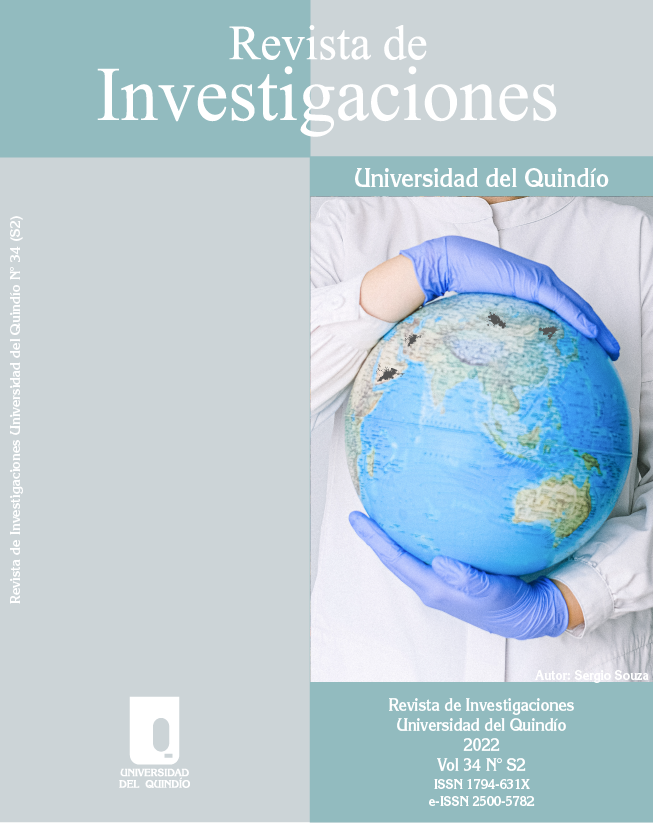Examen de expectativas y motivaciones del profesorado de educación física y deporte desde la profesión docente
DOI:
https://doi.org/10.33975/riuq.vol34nS2.946Palabras clave:
Educación Física, Deporte, Profesión Docente, Expectativa, MotivaciónResumen
El profesorado es sin duda uno de los elementos indispensables de la educación y la formación. Teniendo en cuenta las condiciones actuales, los maestros hacen una contribución significativa a la educación. La eficacia y eficiencia del proceso educativo-enseñanza son posibles brindando una educación de calidad. Obtener la eficiencia necesaria del proceso de enseñanza-enseñanza sólo está directamente relacionado con la satisfacción de los docentes en su profesión y su motivación para enseñar. Este estudio pretende analizar las expectativas y la motivación de los profesores de educación física y deportes en la profesión docente. En el grupo de estudio de investigación, se utilizó una entrevista con treinta instructores de educación física y deportes que actúan en escuelas afiliadas a la Dirección Provincial de Educación Nacional de Iğdır voluntariamente. En este estudio actual, con el uso del enfoque de entrevista, los datos adquiridos han sido analizados con la ayuda de la medida de análisis de contenido. Los resultados demuestran que el oficio docente es respetado y sagrado, oficio que debe ser considerado y orientador de la sociedad. Además, el grupo de investigación espera que sea necesario popularizar la cultura de la educación física y el deporte en la sociedad, formar personas amantes del deporte y eliminar los prejuicios contra la educación física y la enseñanza del deporte.
Descargas
Citas
Abakay, U., Alıncak, F., Demir, H. (2016). The effects of microteaching practices on pre- service physical education and sport teachers’ attitudes towards teaching profession. European Journal of Education Studies, 2(9),127-135.
Atkinson, E.S. (2000). An investigation into the relationship between teacher motivation and pupil motivation. Educational Psychology, 20(1), 45–57.
Escriva-Boulley, G., Tessier, D., Ntoumanis, N., & Sarrazin, P. (2018). Need-supportive professional development in elementary school physical education: Effects of a cluster-randomized control trial on teachers’ motivating style and student physical activity. Sport, Exercise, and Performance Psychology, 7(2), 218.
Glynn, S.M., Aultman, L.P., Owens, A.M. (2005). Motivation to learn in general education programs. The Journal of General Education, 54(2), 150–70.
Hanushek, E.A., Rivkin, S.G. (2007). Pay, working conditions, and teacher quality. The Future of Children, 69-86.
Haerens, L., Krijgsman, C., Mouratidis, A., Borghouts, L., Cardon, G., & Aelterman, N. (2019). How does knowledge about the criteria for an upcoming test relate to adolescents’ situational motivation in physical education? A self-determination theory approach. European Physical Education Review, 25(4), 983-1001.
Ingersoll, R. (2012). Beginning teacher induction: What the data tell us. Phi Delta Kappan, 93(8), 47-51.
Ingersoll, R.M., Merrill, E. (2011). The status of teaching as a profession. J.H. Ballantine, J.Z. Spade (Ed.), Schools and society: a sociological approach to education (ss. 185–189) içinde. Los Angeles: Sage/Pine Forge Press.
Jariono, G., & Subekti, N. (2020). Sports Motivation Survey And Physical Activity Students Of Sport Education Teacher Training And Education Faculty FKIP Muhammadiyah University Surakarta. Kinestetik: Jurnal Ilmiah Pendidikan Jasmani, 4(2), 86-95.
Kniveton, B.H. (2004). The influences and motivations on which students base their choice of career. Research in Education, 72(1),47-59.
Maksymchuk, I., Sitovskyi, A., Savchuk, I., Maksymchuk, B., Frytsiuk, V., Matviichuk, T., ... & Bilan, V. (2018). Developing pedagogical mastery of future physical education teachers in higher education institutions. Journal of Physical Education and Sport, 18(2), 810-815.
Moreno-Murcia, J. A., Huéscar Hernández, E., & Ruiz, L. (2018). Perceptions of controlling teaching behaviors and the effects on the motivation and behavior of high school physical education students. International journal of environmental research and public health, 15(10), 2288.
O’Brien, W., Adamakis, M., O’Brien, N., Onofre, M., Martins, J., Dania, A., ... & Costa, J. (2020). Implications for European Physical Education Teacher Education during the COVID-19 pandemic: a cross-institutional SWOT analysis. European Journal of Teacher Education, 43(4), 503-522.
Popovych, I., & Blynova, O. (2019). Research on the correlation between psychological content parameters of social expectations and the indexes of study progress of future physical education teachers. Journal of Physical Education and Sport, 19, 847-853.
R Richards, K. A., Washburn, N. S., & Hemphill, M. A. (2019). Exploring the influence of perceived mattering, role stress, and emotional exhaustion on physical education teacher/coach job satisfaction. European Physical Education Review, 25(2), 389-408.
Sirin, Y. E., Aydin, Ö., & Bilir, F. P. (2018). Transformational-Transactional Leadership and Organizational Cynicism Perception: Physical Education and Sport Teachers Sample. Universal Journal of Educational Research, 6(9), 2008-2018.
Slemp, G. R., Field, J. G., & Cho, A. S. (2020). A meta-analysis of autonomous and controlled forms of teacher motivation. Journal of Vocational Behavior, 121, 103459.
Sum, K. W. R., Wallhead, T., Ha, S. C. A., & Sit, H. P. C. (2018). Effects of physical education continuing professional development on teachers’ physical literacy and self-efficacy and students’ learning outcomes. International Journal of Educational Research, 88, 1-8.
White, R. L., Bennie, A., Vasconcellos, D., Cinelli, R., Hilland, T., Owen, K. B., & Lonsdale, C. (2021). Self-determination theory in physical education: A systematic review of qualitative studies. Teaching and Teacher Education, 99, 103247.
Yıldırım, A., Şimşek, H. (2013). Sosyal bilimlerde nitel araştırma yöntemleri [Qualitative research methods in the social sciences]. (9.Baskı). Ankara: Seçkin Yayınevi. (In Turkish).
Descargas
Publicado
Cómo citar
Número
Sección
Licencia
Derechos de autor 2022 Revista de Investigaciones Universidad del Quindío

Esta obra está bajo una licencia internacional Creative Commons Atribución-NoComercial-SinDerivadas 4.0.


